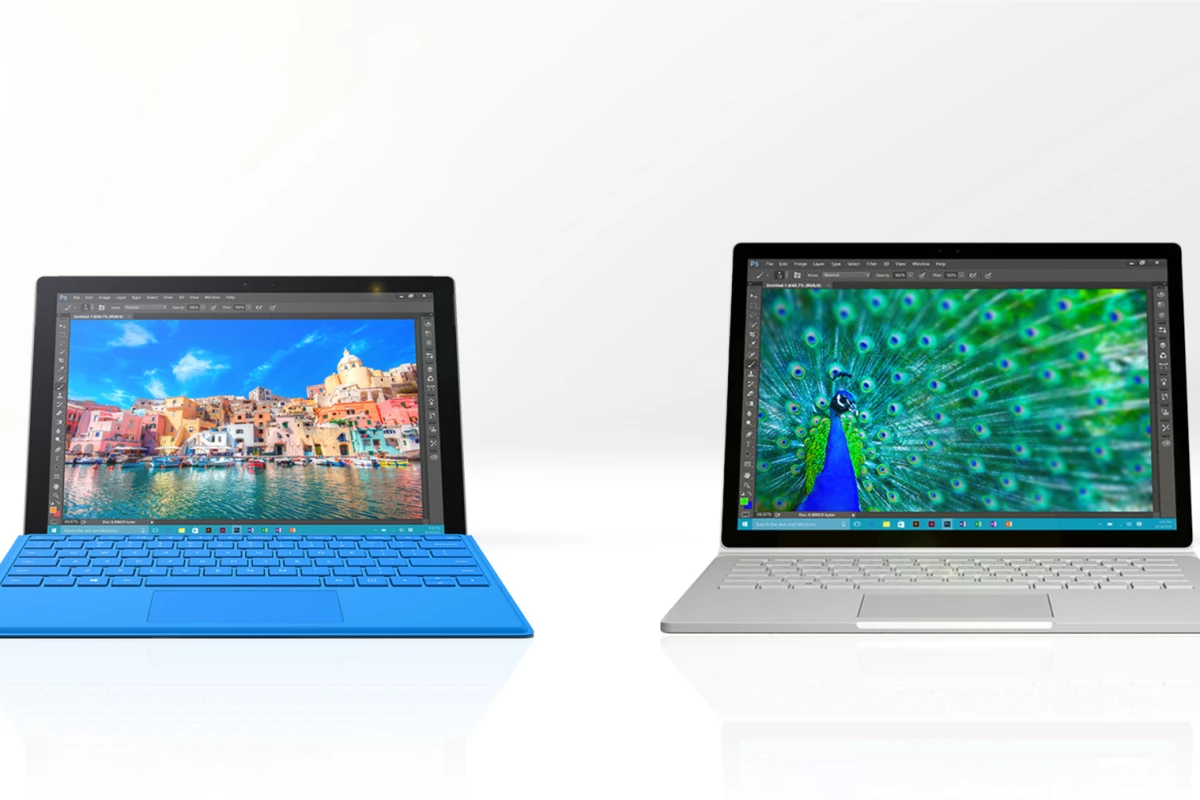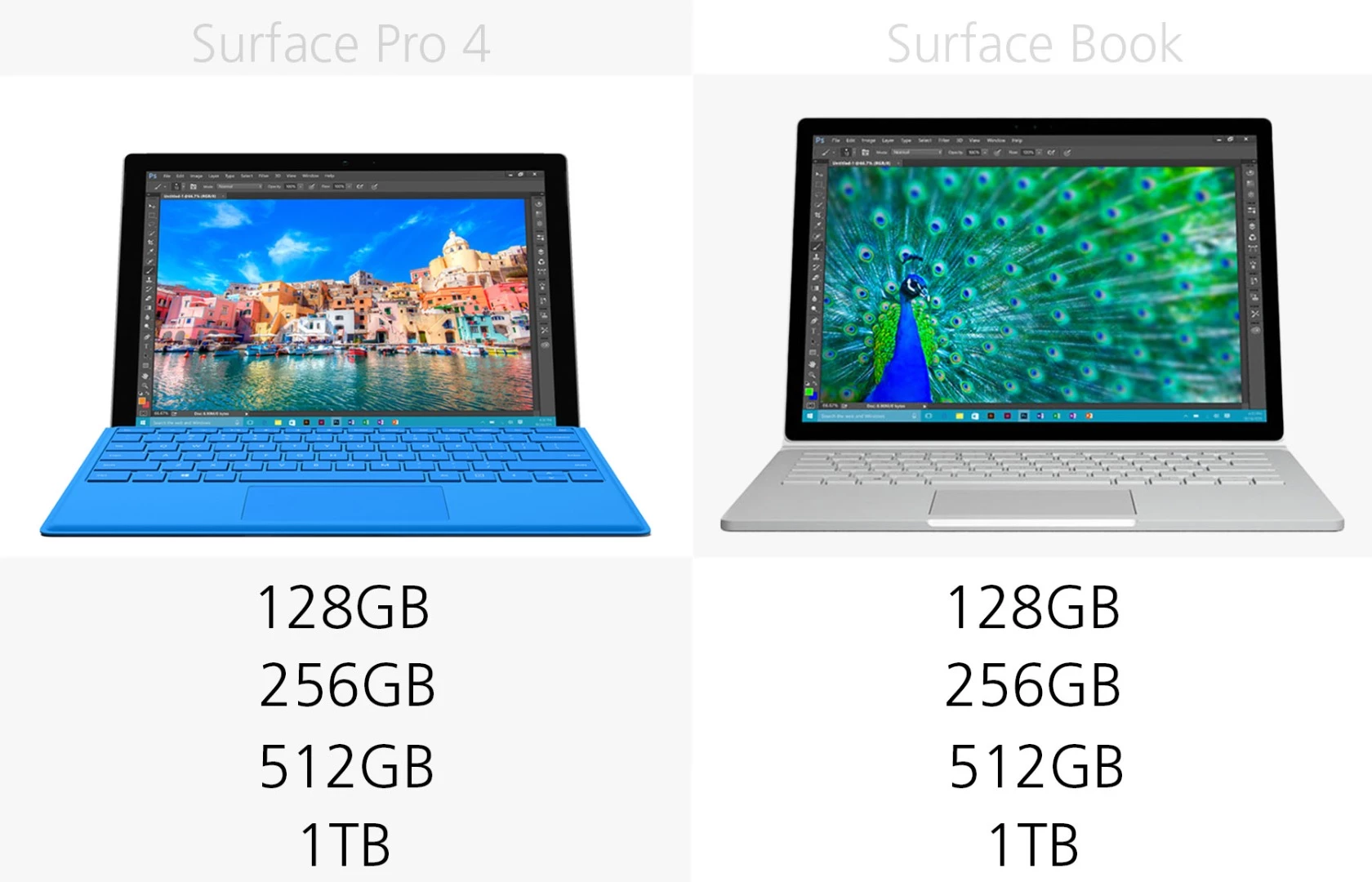If you're looking to buy a Surface, this year Microsoft is making your decision harder than ever. Let's compare the features and specs of the two 2015 flagship models, the Surface Pro 4 and Surface Book.
Size

The new Surface Book is 15 percent taller and 7 percent wider than the Surface Pro 4.
The thickness measurement you see above for the Surface Pro 4 is for the tablet only – when you add the keyboard it jumps up to either 13.2 mm thick (with the fingerprint sensor Type Cover) or 13.4 mm thick (standard SP4 Type Cover).
... and the range of thickness measurements you see for the Surface Book is because it folds over with a gap in between, up near its screen.
Weight (starting)

When you add the fingerprint sensor Type Cover to the Surface Pro 4, it comes out to 31 percent lighter than the Surface Book.
Keep in mind that these are only "starting weights," measuring the entry-level (Core M) Surface Pro 4 and the entry-level (no discrete GPU) Surface Book. The Core i5 and i7 SP4s are 20 g (2 percent) heavier than the Core M model, and the Surface Book with discrete GPU is 64 g (4 percent) heavier than the models with only integrated graphics.
Adding yet another complication to this seemingly simple category, if you go for the standard Surface Pro 4 Type Cover without fingerprint sensor, then that's another 25 g to tack onto its total weight.
Build

Both machines have magnesium builds, though for the Surface Book that includes its entire body. For the Surface Pro 4, this only applies to the tablet part of it (its detachable keyboard is made of plastic and a soft, fabric-like material).
Detachable tablet

If you've used any Surface, then you already know the drill with the Surface Pro 4. The device itself is a tablet, but it also has an "optional" (though it's more like essential) keyboard cover accessory that's sold separately.
The new Surface Book is closer to being a traditional laptop, but you can also pull its screen off for what Microsoft calls "clipboard mode." It looks like the company is avoiding the word "tablet" to frame the Surface Book as more of a laptop than a 2-in-1, but if you go for the cheaper models with integrated graphics, clipboard mode will have just as much raw power as laptop mode.
Touchpad material
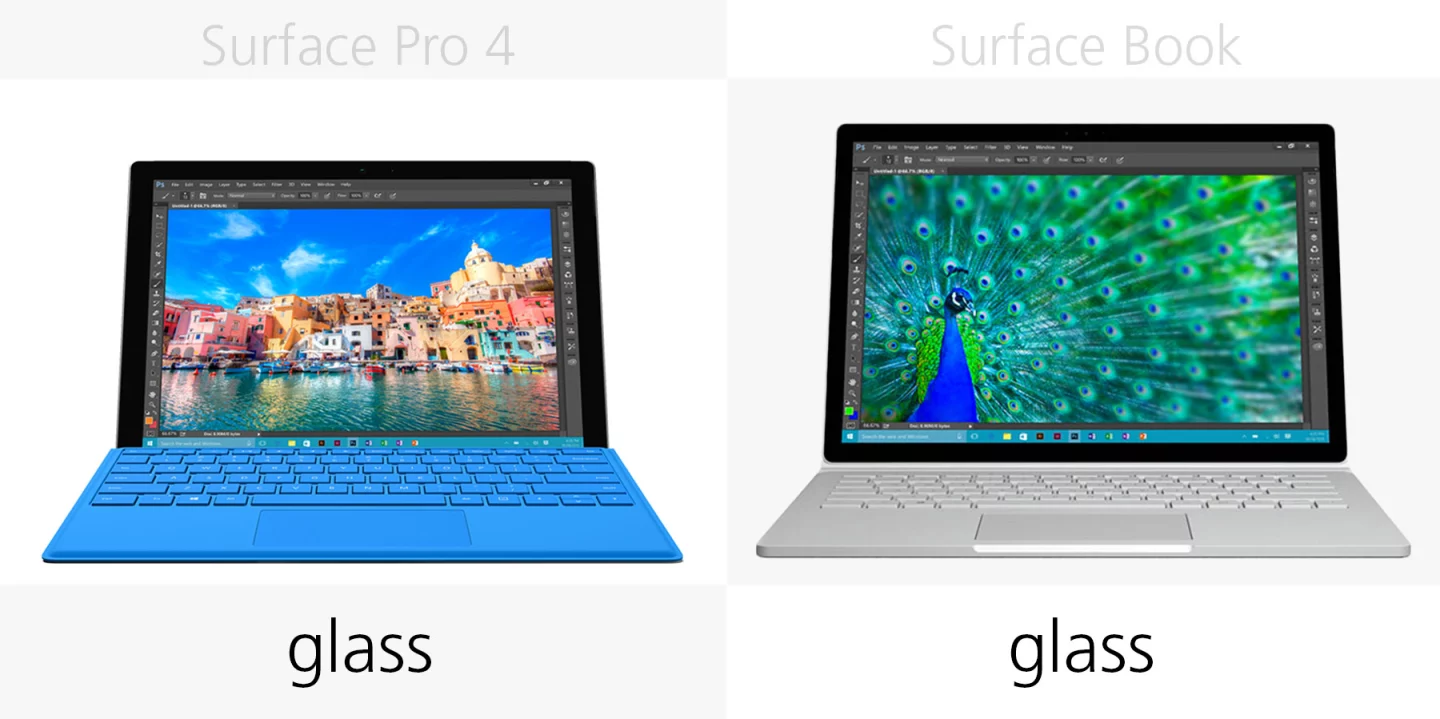
This could be one of the most important upgrades in this year's Surfaces, as they both have large, glass trackpads.
Color options

You can personalize the SP4 with your own favorite keyboard color, but the devices themselves are both silver-colored.
Display size

The Surface Book's screen is about 21 percent bigger than the Surface Pro 4's 12.3-incher.
Display resolution

Both systems have sharp (for these device types) 267 PPI screens.
Touchscreen
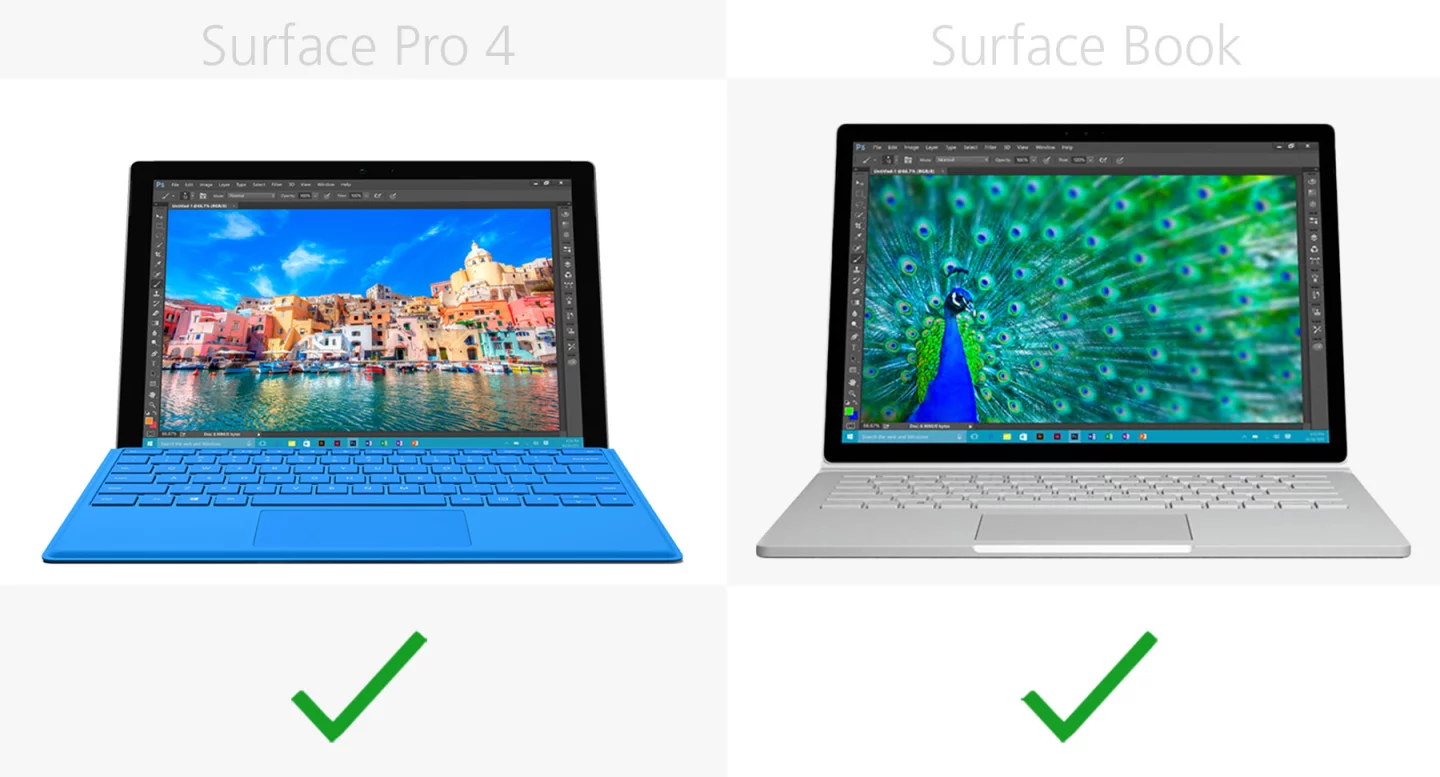
The new Surfaces both support touch input.
Pen

Ditto for Surface Pen input, and – unlike the iPad Pro and its "Pencil" – both new Surfaces include the Pen in the box.
Facial recognition login

Both devices support the facial recognition portion of Windows 10's Hello feature, so you can automatically log in using only your pretty mug.
Fingerprint sensor option
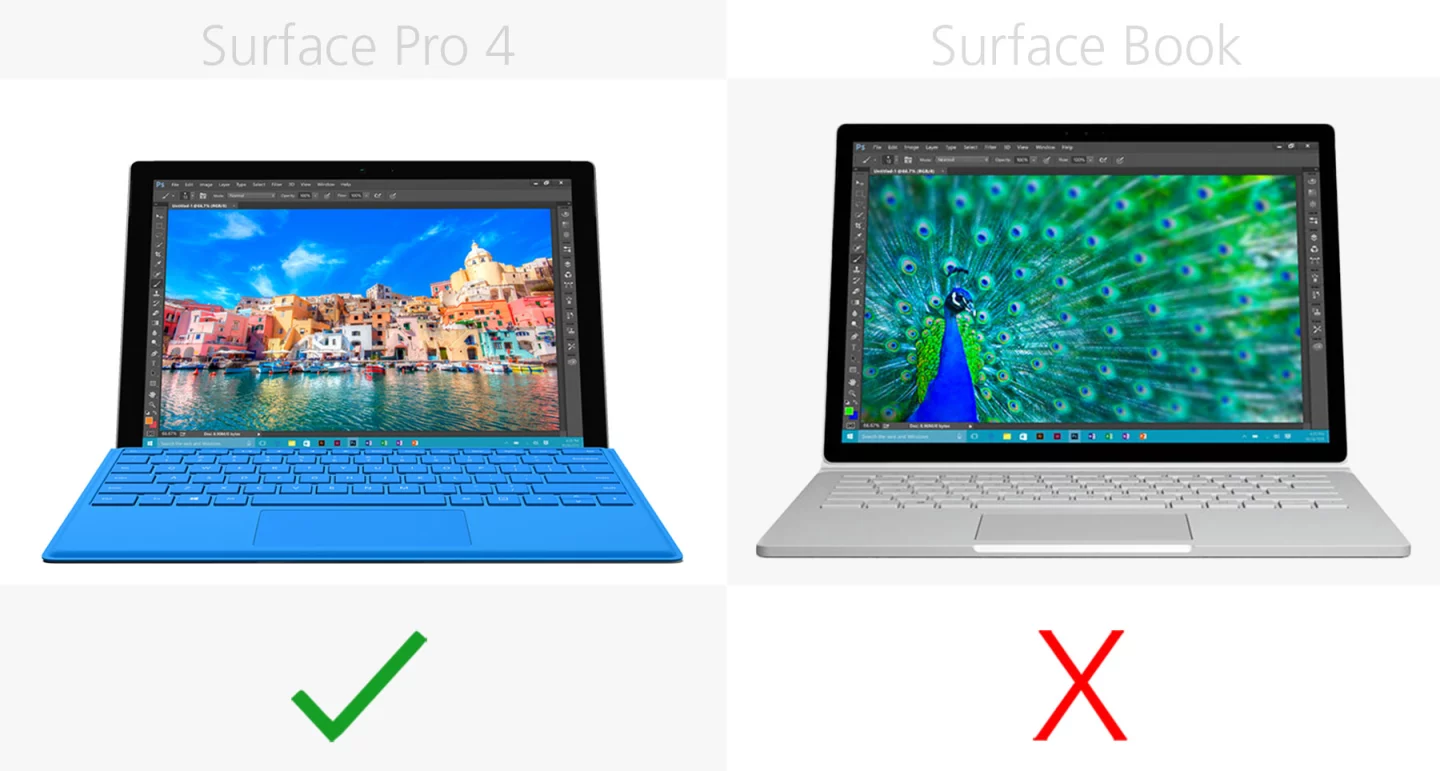
If that isn't enough, you can also buy a (US$30 more expensive) Type Cover for the Surface Pro 4 that has a built-in fingerprint sensor, for the other part of Windows Hello.
Processor

You have several processor configurations to choose from for both PCs, with the entry-level (Core m3) Surface Pro 4 being the least powerful. On the flip side, though, that model is the only one that's fanless.
You should see a noticeable performance boost going from that Core M SP4 to either the second-tier Pro 4 or the entry-level Surface Book (both with Core i5 processors).
Microsoft hasn't yet announced the clock speeds of the different processor configurations.
Graphics

Up to this point, Surfaces have always used integrated Intel graphics, but if you pony up for one of the more expensive Surface Books, you get a discrete Nvidia GeForce graphics card – built right into the keyboard.
We still don't know exactly what model of GeForce graphics card that is, though, and also remember that when you pull the screen off of the Nvidia-laden Surface Books (Clipboard Mode), you'll temporarily lose that extra graphics punch.
It's too early to say if the discrete GPU models of the Surface will be good choices for serious gaming, but they'll likely be at least somewhat competent in that department.
RAM

The cheapest models of Surface Pro 4 have 4 GB of RAM, but all of your other choices at least double that.
Battery

Microsoft is estimating an extra three hours of video-watching on the Surface Book.
Note that both of those battery estimates are based on Microsoft's tests using Core i5/8 GB RAM models.
Storage

Considering its price, it's a little disappointing that the entry-level Surface Book doesn't have more than 128 GB of storage.
All models of both machines use SSDs; no HDDs or hybrid drives here.
SD

The Surface Pro 4 lets you expand your internal storage with a microSD card slot, while the Surface Book has a full-sized SD slot.
USB ports

The Surface Book has two USB ports to the SP4's one.
Microsoft didn't include any USB Type C ports on the new models. While there aren't many USB-C accessories around yet, we may see a different story several years from now. Something to keep in mind if you plan on hanging onto your device for more than the next year or two.
Video out
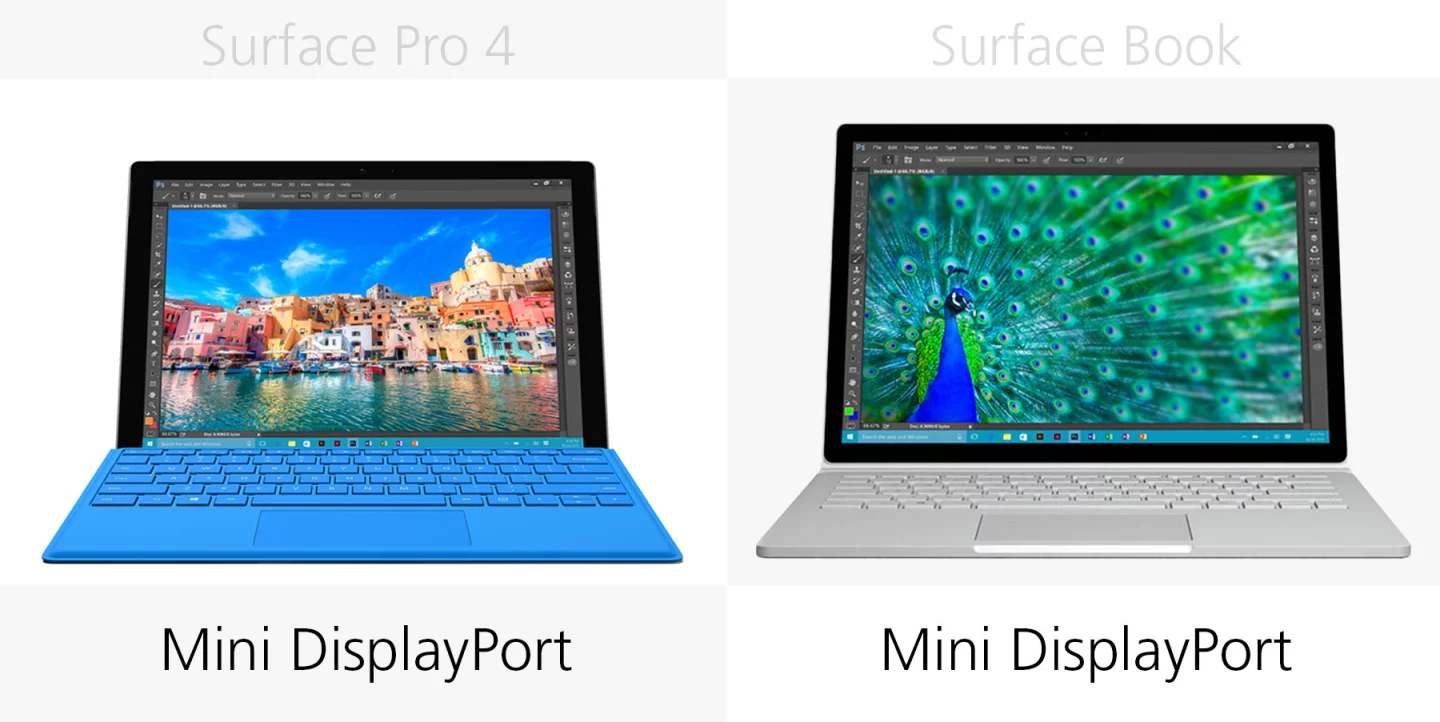
Both Surfaces have Mini DisplayPorts for things like external monitors (which can help either machine to double as a desktop PC).
Camera megapixels

Photography isn't going to be a big part of either product, but things like video chat and facial recognition logins might be.
Software
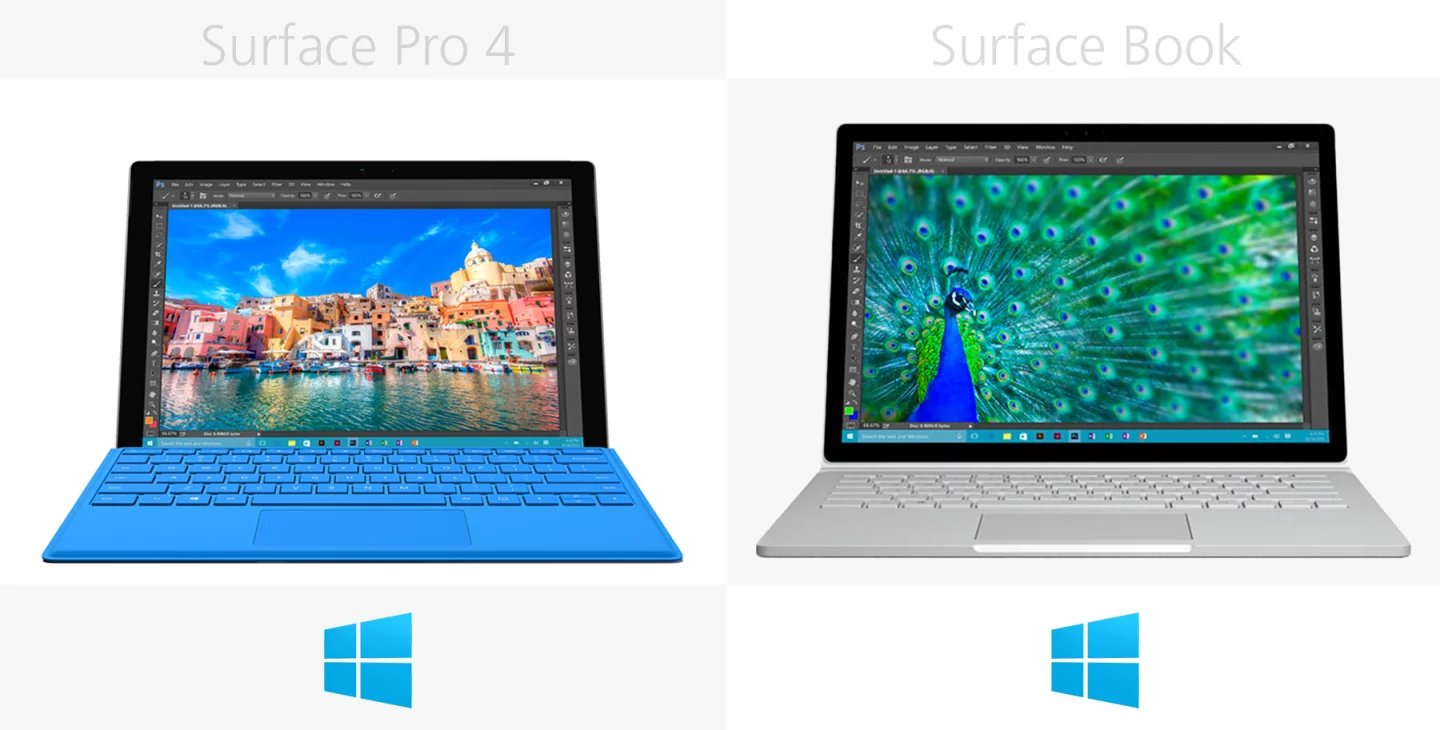
Both machines ship with Windows 10.
Release

The new Surfaces have been up for pre-order since last week, and will start arriving on October 26.
Starting price

With the standard Type Cover keyboard added to the entry-level Surface Pro 4's cost, the first-tier Surface Book comes out to $470 more expensive.
We're just scratching the (ahem) surfaces of these two machines, but we'll have full reviews after launch. Stay tuned.
